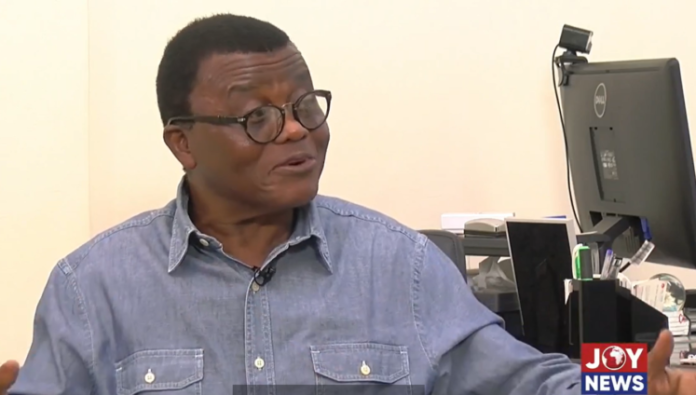Former UN Senior Governance Advisor, Prof. Baffour Agyeman-Duah, says despite Ghana’s commendable democratic credentials, the country has little to show in terms of economic benefits from its democratic achievements.
“Ultimately, people want to see their well-being enhanced through the politics that we have. Meaning the economy getting better, employment being available, people working for decent salaries and being able to take care of the basics of life,” he told Joy News’ PM Express on Wednesday.
His comments followed former Deputy Finance Minister Kwaku Kwarteng’s comparison of Ghana’s economic management to a Ponzi scheme.
The Obuasi West MP attributed the current economic challenges at both national and household levels to decades of poor governance, political mismanagement, and economic inefficiency across various administrations.
In an article on Thursday, July 25, titled “To break the eight, we must first break the norm,” Mr Kwarteng advised his party, the governing New Patriotic Party (NPP), and all political parties to address these systemic issues.
Prof. Agyeman-Duah agreed, stating, “The totality of our efforts has not been yielding any results and therefore, we need to change the trajectory of our politics which tends to determine the economy.”
He supported Mr Kwarteng’s use of the term Ponzi scheme to describe the economy, noting that both NDC and NPP governments have continuously borrowed without prioritising domestic production.
“Certain things that we can do ourselves, governments are not putting priorities on those issues, so we even import toothpicks.
“Meanwhile, politicians have been voted for to think for us together with the inputs that we provide yet they don’t want to use the power vested in them and resources at their disposal to drive the required changes,” he explained.

Prof. Agyeman-Duah added that once in office, politicians often focus on narrow, exclusive policies that do not serve the broader population.
Dr Kojo Pumpuni Asante, the Director of Advocacy and Policy Engagement with CDD Ghana, also on the show, echoed similar sentiments.
“You cannot just go and have an election and expect that in the process of governing, you completely misgovern or you are indisciplined or reckless and somehow at the end you get development. This is the kind of game we have been playing for a long time,” he stated.
He highlighted that without good governance, democracy cannot lead to development, noting that the situation has worsened over the years, prompting a debate on whether the political class is willing to change this narrative.
Godfred Alufa Bokpin, an economics professor at the University of Ghana, added his perspective, highlighting a growing dissatisfaction with Ghana’s democracy as it fails to benefit the average person.
“Our democracy has been reduced to elections, and the electorates also prepare for that as they all try to maximize their returns during election year by collecting money from politicians,” he said.
“On average, what we do is use the poor and electorates only as care of because the goal really is not to govern well for the benefit of the ordinary Ghanaian. Politicians, once they get power, change everything from the way they see things when they are in opposition.
“This is simply because we are not governed for the common good; that is not the goal. We genuinely don’t love ourselves, and it is not really our intention that it will be well with every Ghanaian,” he stated.
According to him, if Ghanaians are waiting for politicians to reset the country to default mode, “it will never happen.”
Source: Myjoyonline.com
ALSO READ:

